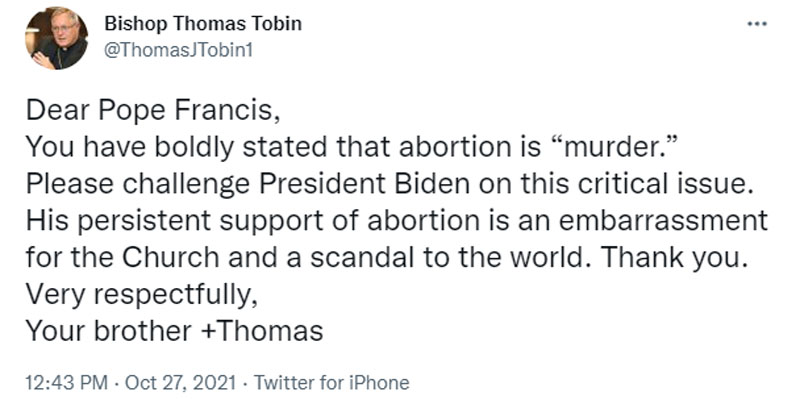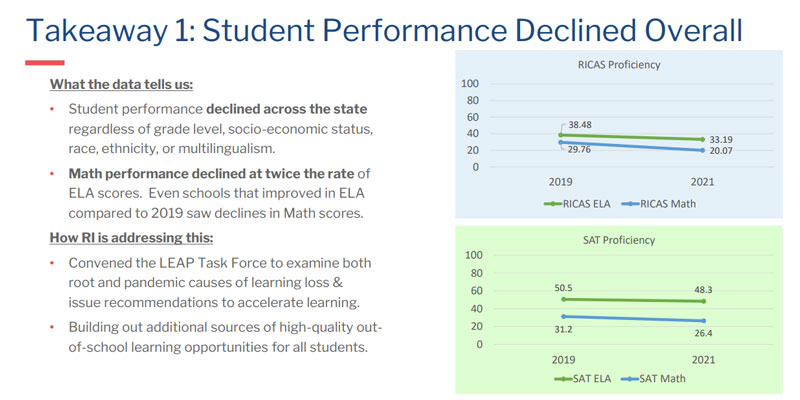Brown Daily Herald reporter Michael Seoane has published a straight-news article on the Republican candidate for the 3rd district senate seat in the state General Assembly, Alex Cannon.
After a few paragraphs of agreement with the Cannon’s policy proposals, I braced for the worst when the article inevitably turned to climate change, but this seems exactly like the sort of suggestion somebody who is realistic and serious about addressing energy problems would make:
Another issue Cannon will tackle is climate change, something he believes Rhode Island needs to take urgent action on. With growing uncertainty about the efficiency of solar and wind power, the State Senate candidate spoke about potentially shifting to nuclear energy in the future. “I know many people are not fans of nuclear power, but, to be honest, nuclear power is one of the safest forms of energy production we have,” he said.
That’s certainly preferable to the approach that insists on imposing all sorts of requirements for acceptable energy and just expecting it to be plausible.
[Open full post]Conservatives tend to emphasize reliance on the market not because it is a white patriarchal system designed to funnel money to them (which is so comical widespread belief in that proposition should be sufficient evidence that young adults are being maleducated). Rather, the value of the market is that it is an independent mechanism to factor an inconceivable amount of information into every decision. Witness the alternative:
African health officials and the United Nations are warning of a looming shortage of more than 2 billion syringes for mainly low- and middle-income countries around the world as the supply of COVID-19 doses rises, and routine vaccinations could be affected, too.
Governments are borrowing and printing money to take pricing information out of the calculation for COVID vaccines, which means feedback can only be received politically, which means it’s probably too late for the many people who are going to suffer the consequences.
[Open full post]We’ve heard quite a bit about the terrors of eviction during the pandemic and the government-driven closure of our economy, and the talk tends to imply that people who own rental properties don’t need the money — as if the rentals merely contribute side cash to big piles in their basements. That perspective has informed government programs, which are framed in terms of giving tenants money for rent rather than giving landlords money to cover their rentals. That is the emphasis: to help the renters, not to help both parties in their mutual arrangement.
This framing has come back to bite Andrew Butler, according to an article by Tamara Sacharczyk for WJAR:
A local landlord is bringing attention to a potential loophole in Rhode Island’s rental assistance program that he said caused him to lose $12,000 in federal funds.
Andrew Butler of Elmwood Property Management contacted the NBC 10 I-Team after money meant to cover months of unpaid rent was sent straight to his tenant, who has allegedly refused to hand it over.
The money was approved by RentReliefRI, a program that uses federal funds from tax dollars to help landlords and tenants who’ve fallen behind on rent.
Apparently, the rules say money is supposed to go to the landlord unless he or she can’t be reached or refuses to take it, but RIHousing seems to have issued this payment directly to the tenant, who has kept it. The rules also say the tenant has seven days to pay the landlord, but the penalty is that scofflaws won’t be eligible for any more payments through the program and “may be reported to Treasury and/or law enforcement for investigation, which may result in a determination of my disqualification for other federal programs among other civil or criminal legal consequences” (emphasis added).
In short, the consequences may not seem all that unattractive in comparison with a $12,000 windfall for the tenant, especially in an environment in which evicted people are inevitably presented as victims and activists insist that people have a right to have others provide them housing.
Both propositions are debatable, but advocates rarely show interest in having their programs reasonably enforced. If one believes that government should provide housing payments for struggling tenants, then ensuring that the program runs the way it’s supposed to run should be a high priority. Otherwise, the program won’t function for long, as public support and money wane and property owners refuse to be left holding the empty bag any longer, even if that means no longer renting properties.
The reality is, however, that as a slogan “housing is a human right” tends not to have much substance beyond forcing people who own property to provide its use to those who do not. At this basic level, the very legitimacy of making money through the ownership, maintenance, and rental of homes comes into question. If the advocates at agencies like RIHousing are fully saturated in this belief system, they won’t see landlords as partners in the provision of housing, but as something more like an opposition to overcome.
Thus, as Andrew Butler has discovered, the rules are not what is written but what is enforced. The ruling party relies on its constituents for power, and so the system will serve those constituents, right or wrong. Operating here in deep blue Rhode Island, nobody up the chain to the White House has any direct incentive to ensure that the programs they support are reasonable or fair.
Featured image by Steven Ungermann on Unsplash.
[Open full post]Naturally, I’m in agreement with Bishop Tobin and this tweet to Pope Francis, both in substance and in the meta-factor of thinking it needs to be sent:
Dear Pope Francis,
You have boldly stated that abortion is “murder.” Please challenge President Biden on this critical issue. His persistent support of abortion is an embarrassment for the Church and a scandal to the world. Thank you.
Very respectfully,
Your brother +Thomas
We’re talking Twitter, here, so of course such statements draw suspicion and ire, such as this response from WPRO radio host Dan Yorke:
Before Twitter…would
@ThomasJTobin1
have made a call to the Vatican, sent a letter or just prayed?
What a weird world this is these days
I’m not sure tweets like the bishop’s are all that new in what they represent. It’s essentially a short-form open letter that might have appeared in local papers a couple decades ago, except those had less likelihood of actually being seen by the people to whom they were addressed. Back then, such things were often understood more as public communications reflecting direct communications that were not public, and Bishop Tobin may already have utilized every channel at his disposal to send this same message internally within the Church. (I hope he has.)
What’s new and weird these days, though, is that in the time before Twitter it was inconceivable that a supposedly Catholic president would have been as overtly pro-abortion as Joe Biden and even more so (if that’s possible) that the pope could not have been trusted to make an issue of it publicly.
As our culture sinks into the mire, a conspicuous reality is worth noting: The people who are hostile toward Bishop Tobin and more-approving of Pope Francis tend also to be hostile to the institutional Church, generally. Christians should recall a bit of counsel from our Lord:
If the world hates you, realize that it hated me first. If you belonged to the world, the world would love its own; but because you do not belong to the world, and I have chosen you out of the world, the world hates you. (John 15:18-19)
Jesus goes on to say that people’s hatred of him was a response to his pointing out their sins, knowledge of which has made them culpable. And so it is still, even after the advent of Twitter.
[Open full post]With some variation depending on role and discipline, college professors should enjoy wide latitude to speak their minds, but at the very least, this story proves the talk about valuing all people and their comfort and despising racism in all its forms is just that… talk:
Controversial Rutgers associate professor and author Dr. Brittney Cooper said last month that she wanted to “take these mothers***ers out,” referring to white people. …
“White people thought, ‘there is a world here, and we own it,’” Cooper said during a conversation with The Root, The College fix reported. …
Whites believe, Cooper said, “either you dominate or you are dominated.” …
“The world didn’t start when white people arrived in America and tried to tell all the rest of us how things are going to go,” Cooper told the Root. “There were people out here making worlds – Africans and indigenous people being brilliant, and libraries, and inventions, and vibrant notions of humanity, and cross-cultural exchange long before white people showed up being raggedy and violent and terrible and trying to take everything from everybody.”
This is straight-up ignorant racism and ought to disgust all Americans.
[Open full post]Not to be cynical, but the question of this post’s headline is serious. I look at the results for students on the Rhode Island Comprehensive Assessment System (RICAS) — with overall proficiency drops from 38% to 33% in English and from 30% to 20% in math — and I think, “So what?” The same goes for the drops in SAT proficiency from 51% to 48% in English and 31% to 26% in math. So what?
Only 31% of RI high schoolers were ready for college math before COVID. What’s another 5% of them lost?
(Truth be told, these numbers understate the fall. It’s a commonplace among people who track SAT results that average scores go up when fewer students participate. That’s because the students who are most likely not to take such tests are also not the most dedicated and motivated.)
Sure, the chart used for the featured image of this post shows decreases, but the scores were bad and barely improving anyway. If the people who operate our education system — if all of us — were serious about improvements, we wouldn’t be having these same conversations about relatively similar shades of failure year after year and decade after decade.
If we didn’t care about fixing what’s wrong before COVID (which the lack of action in Providence since the Johns Hopkins report caught national attention in 2019 proves we didn’t), why should we care that we failed a little bit larger portion of the current crop of students in our extreme reaction to the coronavirus? The very fact that we let the government do that to our children proves we don’t care. Consider this additional layer of information from Dan McGowan’s Boston Globe article on the results:
[Education Commissioner Angélica] Infante-Green said there was a wide disparity in results for students who attended school in person versus attending school remotely. In math, 27 percent of who students who were regularly in school met or exceeded expectations on the RICAS, compared to 13 percent for students who were mostly virtual. In English, 39 percent of students who were enrolled in in-person learning were proficient, and 26 percent of virtual students were proficient.
The average English score for those in school during the latest year was actually higher than the overall average the year before! This underlying gap shows that the article’s characterization isn’t quite accurate, that the cause of the drops was that “COVID-19 wreaked havoc on all schools.” Rather, our reaction to COVID-19 wreaked havoc on schools.
But again: so what? As the Department of Education’s presentation makes clear, compared with Massachusetts, the failure of Rhode Island’s education system was already doing two COVIDs of harm to students every single year.
Even that’s too kind, because a society that cared wouldn’t be impressed that Massachusetts only fails half its students. COVID and the associated lockdowns and maskings have been terrible, but they are hardly a drop in the bucket of terribleness in our education system. We’ve proven we don’t care about ongoing failure, so why should we care about this year’s slightly worse variant?
[Open full post]Katherine Gregg frames her story about state health facilities’ challenges getting by without unvaccinated employees for the Providence Journal in terms of the government’s incompetence at replacing them:
Despite promises made to the state Department of Health to bring in replacements for unvaccinated staff, neither the state-run Eleanor Slater Hospital nor the Veterans Home has done so. …
When the original deadline took effect on Oct. 1, many unvaccinated health-care workers got a 30-day grace period from the Health Department to allow hospitals and other facilities to make alternate staffing arrangements.
It appears the majority of the state’s unvaccinated health-care workers from Oct. 1 were still working at Slater hospital and the state-run nursing home for veterans as recently as Tuesday – still unvaccinated.
The reader does not find any hint that the reporter or the officials are questioning whether the vaccine mandate was a good idea, but the inability of the state to function well under ordinary circumstances is a major indication that it shouldn’t make functioning even more difficult.
[Open full post]So, yeah… the statement that the school employees involved in this event didn’t know the details is no excuse:
The superintendent of Hazard Independent Schools said “appropriate disciplinary action has been taken” after photos surfaced showing students giving lap dances to staff and wearing scant clothing Tuesday as part of Hazard High School’s homecoming week festivities in Eastern Kentucky.
How sick and perverted along multiple dimensions must a school system be at its baseline for nobody (student or adult) to stop something like this before it occurred?
[Open full post]The Rhode Island General Assembly is calling its page for information about ideas and proposals related to its federal COVID handout the “American Rescue Plan Act State Fiscal Recovery Fund Recommendation Portal.” The Associated Press article about the portal maintains that framing:
Rhode Island’s legislature has created a website to post the proposals it’s receiving for spending federal funds to help the state recover from the coronavirus pandemic.
It’s fair enough that anybody can send a suggestion to the associated email address, but the required cover sheet has that consistent Rhode Island quality. It’s not indicative of a desire for wide open suggestions from Rhode Islanders. It’s more like a request for bids.
At the top of the form is a space for the “lead agency,” which makes it look like the form is for people within government agencies requesting funds, or at best where citizens would put in the agency they think would handle the suggested project. For most people, “agency” is government talk. There are no clear instructions that give the impression of having been written with the common Rhode Islander in mind.
Probably that is because the common Rhode Islander was not whom the legislature had in mind. The “documents” that are beginning to appear on the page are all formal-looking proposals from special interests, with the Rhode Island AFL-CIO labor union right at the top.
This guarantees that the funds will not be spent for the maximum benefit of the state and its people.
The U.S. News & World Report, to whose reprinting of the AP article I’ve linked above, provides an automatic link on the name, “Rhode Island.” Helpfully, this link goes to the Report’s page for Rhode Island on its ranking of the best and worst states.
Rhode Island does relatively well on this ranking, coming in at a still-pitiful 34 out of 50, but the Ocean State’s ranking by category are telling:
- Health Care: #9
- Education: #39
- Economy: #28
- Infrastructure: #49
- Opportunity: #32 (based on an Affordability rank of 45)
- Fiscal Stability: #44
- Crime & Corrections: #7
- Natural Environment: #7
The mix of good and bad on these rankings always points to a single conclusion: Rhode Island is a wonderful place to live that is being held back by its government. It’s that simple. We need less and more-competent government. That means we need fewer special interests putting in fancy proposals (and making back-room deals).
Rhode Island could jump from the bottom 15 on all these rankings to the top 15 by doing two things:
- Fix roads and bridges, while running pipes for utility wires underground, with the one-time federal money and its general revenue without imposing any new taxes or tolls.
- Reduce the ability of labor unions to drive up costs and drag down quality and innovation.
Just those two things, which can be done with zero negative impact on the categories on which Rhode Island scores well, would transform life around here within a decade. We’d notice the infrastructure improvement right away, which would help the economy, which would improve opportunity and affordability, while helping the government with its fiscal stability based on new activity, not increased rates of taxation. Meanwhile, the softened grip of labor unions would immediately allow the state to do more with the resources it already has while lowering the single biggest obstacle to quality education.
Featured image by Justin Katz.
[Open full post]Sometimes watching public policy is like a society-wide 4D puzzle, with the fourth dimension being (of course) time.
I remember in 2013 when I had to explain to folks behind the scenes why legislation to create a new type of corporation — the public benefit corporation — belonged on the RI Center for Freedom & Prosperity’s legislative watch list that year. As I succinctly explained in a liveblog of a General Assembly meeting: “Once these corporations are in place, you’ll start to see the legislature manipulating the marketplace to give them an advantage, in general and with respect to government contracts.”
Of course, progressives take their time with these things. Folks like me watched “benefit corporations” sink below the surface of the water as other issues emerged, competing for our attention. Here’s a new sighting of the concept:
Billionaires Reid Hoffman and George Soros are backing a public benefit corporation that will provide funding to new media companies aimed at tackling disinformation online and restoring social trust.
Good Information Inc. launched on Tuesday and is being led by former Democratic strategist Tara McGowan who previously ran a progressive non-profit called ACRONYM, which was backed by LinkedIn founder Hoffman. Others contributing to the multi-million seed effort include investors Ken and Jen Duda, and Incite Ventures.
The ideological cover is paper thin:
In a press release on Oct. 26, Good Information Inc said its aim is to “restore social trust” and “strengthen democracy” by “investing in solutions that counter disinformation and increase the flow of good information online.” …
McGowan’s former progressive non-profit, ACRONYM, ran one of the biggest digital campaigns—costing $100 million—aimed at convincing millions of Americans to vote against Donald Trump in the 2020 elections, Fast Company reports.
One of the companies ACRONYM invested in, called Shadow, produced the vote tabulation app used in the Iowa caucuses and contributed to the delayed reporting of the results following a string of technical issues.
That’s a twofer. The company and its affiliates was essentially an anti-Trump PAC and was directly involved in… let’s say… the oddness of the election and its result. See, that’s a “public benefit.”
On the surface, folks trying to maintain a non-partisan stance might ask, “So what?” Private, for-profit companies can do these things, and benefit corporations are simply private, for-profit companies.
Well, there are a few obvious “so whats.” The first is admitted superficial: The government recognizing a company as providing a “public benefit” affects how people will think of it, and it remains to be proven that opposing viewpoints would be permitted to claim the same mantle. The Rhode Island law (which passed, of course) defines a “general public benefit” as “a material positive impact on society and the environment, taken as a whole, assessed against a third-party standard.” Could conservative billionaires fund a competing de facto PAC along the same lines, or would the “public benefit” be challenged?
A second problem that has become clearer since I first spotted the scheme is that “benefit corporations” state a particular goal as part of their purpose, which makes it legally defensible in opposition to profit. If you invest in a company and it opts to back some political cause that tangibly harms its own profits, you can sue; that’s not true with “benefit corporations.” As an investor, you were warned. So imagine the next Twitter were incorporated in this way and was even more aggressive about pushing a political viewpoint. It could downplay the “benefit” as corporate fluff up until investors wanted to stop the political behavior.
The third problem is the one I highlighted way back when. Sure, Step 1 may be mostly a superficially different category in law for certain companies, but Step 2 or 3 will be special privileges for such corporations. Think of how deeply involved the non-profit Rhode Island Foundation has become in our state’s government and politics. Progressives could open the door to less-burdened (and less transparent) for-profit organizations simply by adding the phrase, “or organized under RIGL chapter 7-5.3,” throughout state law.
To make the potential a little clearer, consider Mark Zuckerberg’s suspicious funding of local elections. It’s not difficult to imagine reasonable governments’ seeing that as a loophole and seeking to close it. It’s also not difficult to imagine a category like “benefit corporations” keeping that loophole wide open.
Featured image by Toa Heftiba on Unsplash.
[Open full post]






